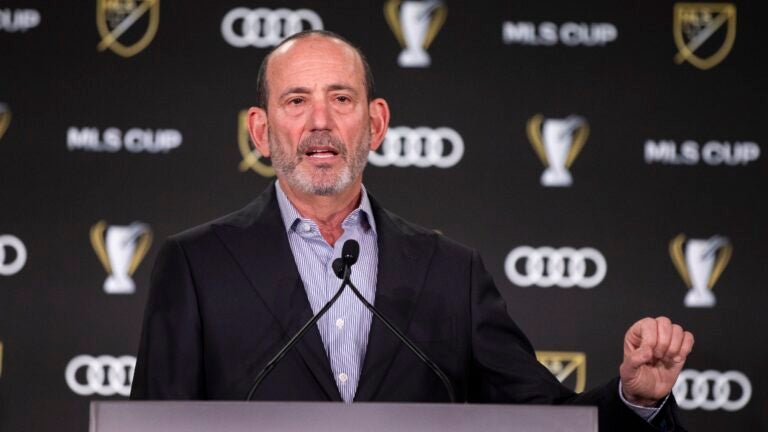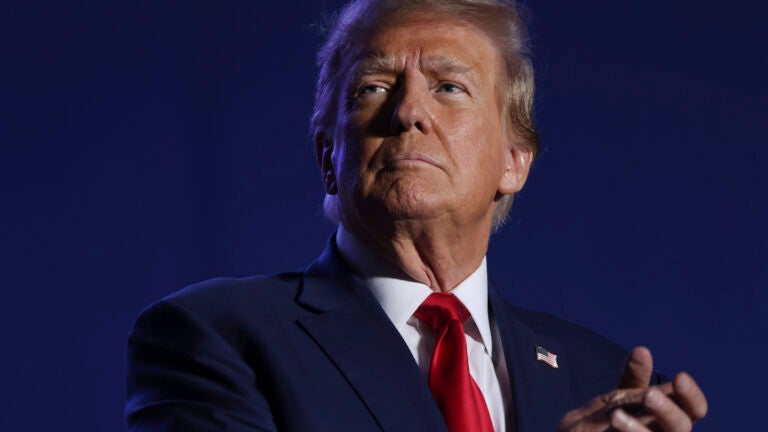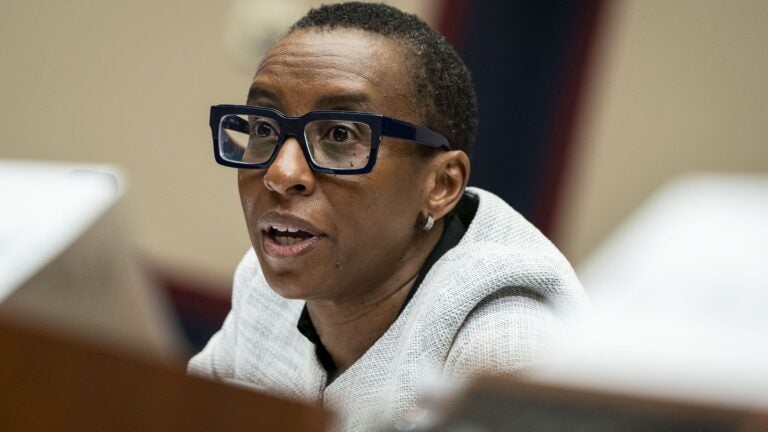U.S. Soccer fires back after Open Cup snub, rejecting MLS plan

American soccer’s governing body has rejected MLS’s effort to send developmental squads to the U.S. Open Cup, the 110-year-old tournament involving all levels of the sport.
The U.S. Soccer Federation’s decision Wednesday is an embarrassment to MLS, which caused a stir in the soccer community last Friday when it announced its U.S.-based teams would not participate in the competition in 2024.
The league cited a congested calendar, which includes a four-week tournament it co-created with Mexico’s top division, and the desire to provide greater competitive opportunities for young players.
“After thoughtful consideration, we have informed MLS that the U.S. Soccer staff recommendation, which was adopted by the Pro League Taskforce, is that the request be denied,” the USSF said in a statement. “As we move forward, we will continue our review of the Open Cup to ensure it aligns with the U.S. Soccer strategic pillars. We remain committed to addressing the needs and concerns of all of our members, including MLS, and other stakeholders to enhance and improve the U.S. Open Cup.”
It did not provide reasons for rejecting MLS’s request.
In a statement, MLS said it took those steps of sending secondary squads because it “believes there are several essential goals and concerns that must be addressed in connection with the tournament.”
The league added, “MLS is committed to finding a viable solution for the 2024 tournament and is working to find a pathway that addresses its goals and concerns.”
It is unclear if a solution is possible this year. MLS on Wednesday was set to release the regular season schedule, which includes several midweek matches (when Open Cup games are played) and a late-summer gap for the Leagues Cup, the second-year tournament pitting all 47 MLS and Liga MX clubs.
The calendar is so crowded, MLS will again defy global protocol and schedule games during international windows, when players are away representing their country.
MLS could find itself in trouble with USSF governance, which sanctions pro leagues for first-, second- and third-division status. The federation’s pro league standards state that “U.S.-based teams must participate in all representative U.S. Soccer and Concacaf [regional] competitions for which they are eligible.”
The Open Cup brings together the three pro divisions, plus amateur sides, for a single-elimination tournament running concurrently with their regular seasons. It is modeled after the English FA Cup and other national cup competitions throughout Europe.
Since its founding in 1996, MLS has entered teams at or near the round of 32. Some teams take it less seriously than others, mixing regulars, reserves and young prospects.
The tournament, however, has suffered from financial burdens on teams, substandard playing conditions at some lower-tier venues and a lack of visibility.
The USSF controls broadcast rights and arranges live streams on various platforms; no games appear on MLS’s primary partner, Apple TV Plus, which is entering the second year of a $2.5 billion deal with the league.
MLS Commissioner Don Garber complained openly about the Open Cup last May. And last week, as a deadline for tournament entry approached, the league announced it planned to send teams from MLS Next Pro, a third-division circuit featuring developmental squads owned by MLS organizations.
Every U.S.-based MLS team fields a team in Next Pro except D.C. United, which plans to launch a program in Baltimore in coming years.
In recent months, MLS said it had discussed its Open Cup intentions with the USSF. “At no time did U.S. Soccer raise an objection to Next Pro’s participation,” said an MLS executive, who did not want to be identified because of the sensitivity of the situation.
In regards to the perception MLS is thumbing its nose at a traditional competition, that executive added, “We respect the tournament history. . . . But what we bristle at is the tournament feels stuck. . . . We believe there needs to be more than a recognition that it needs to evolve.”








Be civil. Be kind.
Read our full community guidelines.